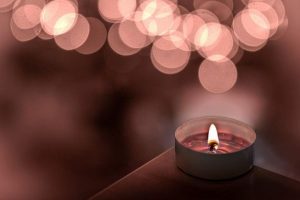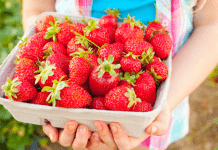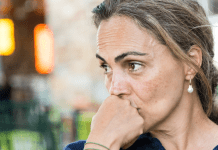I share openly about my postpartum depression.
I write publicly about my therapist and anxiety meds.
But this feels like the most vulnerable confession I’ve ever made:
I don’t drink wine.
I also don’t make jokes about “wine time” or “wine o’clock.” I don’t share memes that promote “liquid therapy” or beg others to “send more wine.”
Before you declare me a sanctimonious teetotaler, please hear me out. My decision to not drink wine does not stem from religious convictions. (I’m a former pastor and, ironically, drank MORE wine when I was a pastor than I drink now.)
 My decision to not drink wine and, therefore, bow out of wine jokes stems from my conviction that moms don’t need more wine, they need more help.
My decision to not drink wine and, therefore, bow out of wine jokes stems from my conviction that moms don’t need more wine, they need more help.
When I had my first baby, I experienced symptoms of postpartum depression and anxiety but managed it with wine. When I had my second baby, I had two kids under two and felt myself spinning out of control. I managed it with wine. When I had my third baby, the bottom fell out and I hit rock bottom.
Mommy didn’t need wine; Mommy needed real and significant help.
I found a postpartum therapist and invested in therapy appointments, not wine.
I started anxiety meds and invested in prescriptions, not wine.
I found a postpartum support group and invested in “listening partners” who would receive my SOS texts and phone calls.
I learned to ask for and accept help from my family.
I learned to lower my expectations for myself: I fed my kids more frozen foods, I allowed more screen time, I stopped cleaning obsessively before visitors, I took more shortcuts.
I learned to let go of control and stop over-functioning: I realized my kids could load the dishwasher, help with laundry, get themselves ready for school, and my husband was perfectly capable of caring for our kids without me micromanaging him.
 I learned to ask for what I need, whether it was 22 minutes to retreat to my bedroom with Netflix or a monthly massage built into our budget.
I learned to ask for what I need, whether it was 22 minutes to retreat to my bedroom with Netflix or a monthly massage built into our budget.
Most importantly, I learned to feel my feelings, even the uncomfortable ones like sadness, disappointment, regret, and anger.
Are wine jokes masking our deeper need for genuine connection to others and, more importantly, to ourselves?
I’m not suggesting mothers must give up wine in order to care for themselves; but I wonder how many of us bury our shame, overwhelm, exhaustion, failure, depression, and anxiety under wine jokes and wine glasses?
According to a 2017 study sponsored by the National Institute on Alcohol Abuse and Alcoholism, alcohol abuse in women increased by 83% between 2002 and 2013. The gap between women and men with drinking problems is shrinking.
Angie, 37, mother of two, realized she was using alcohol to numb the hard parts of life and motherhood. “I was telling myself I ‘deserved’ that glass of wine, which gradually became far more than one glass. I realized that what I actually deserved was to be healthy and live a full, authentic, wild life.”
Susie, 39, says alcohol took on a voice of its own. “It called to me. Did something bad happen? Take the edge off with a drink. Spouse working too late? Fill the loneliness with a drink. Kids being extra loud? Cloud my surroundings with a drink. I knew alcohol became a problem when it would call to me throughout my day. As soon as you get those kids to bed, you can pour yourself a glass (or three) and celebrate completing one more day. What I see, now, is that alcohol disconnected me from those I needed most: a friend to listen to the bad thing that happened, a spouse available to strategize parenting issues, or time alone to connect to my own thoughts and what makes me soulful, human, alive, and happy. ”
For me, the benefits of alcohol were short-lived. After my nightly glass of wine, I woke up with a headache and brain fog. I didn’t feel any better or more capable as a mother; in fact, I felt more shame for not being able to handle my life without alcohol. Deciding to forego my nightly glass of wine allowed me to identify what I really needed in order to live “the most beautiful life I could imagine.” (Thanks, Glennon Doyle.)
But it isn’t easy.
I took a trip to Napa with my sister and didn’t drink any wine. (Remember trips?)
I drink water at parties and worry people think I’m “no fun.” (Remember parties??)
I am trying to cope with the uncertainty of a pandemic without alcohol.
Similarly, Angie admits it’s tough to abstain in today’s wine culture. “Sobriety in a culture of normalized, daily drinking and mom wine jokes is hard sometimes; however, I have gained far more than I gave up when I stopped drinking alcohol.”
Susie agrees. “The alcohol clouded my brain and made my most authentic pleasures impossible: deep, meaningful conversations, watching a favorite TV show and actually remembering what happened, getting lost in a really good book, taking on a creative home improvement project….not to mention it (alcohol) brought physical difficulties: staying up too late to finish just one more glass, interrupted sleep, dehydration, weight gain, and grumpy mornings.”
Mama, I promise this post isn’t intended to shame you for your glass of wine. This post is permission to not drink wine if that’s what’s best for you. If you see yourself in my story, or Angie’s story, or Susie’s story, take comfort in knowing you’re not alone. Motherhood is hard (impossible, really) and you deserve real help. Your needs matter. Your feelings matter. I see how hard you’re trying and it’s ok to reach out for help. (See resources below)
Want to read about moms who sobered up? Check out Celeste Yvonne (The Ultimate Mom Challenge) or join “The 30-day alcohol-free experiment” with Annie Grace (This Naked Mind).
Other resources:
Alcoholics Anonymous https://www.aa.org
Centimano Counseling https://www.centimano.com
















